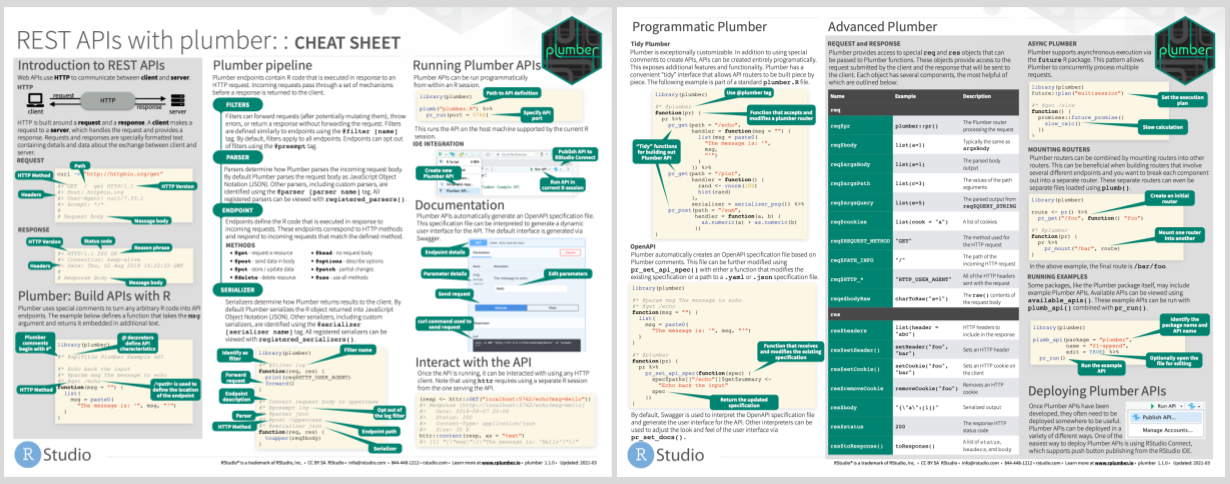Plumber allows you to create a web API by merely decorating your existing R
source code with roxygen2-like comments. Take a look at an example.
# plumber.R
#* Echo back the input
#* @param msg The message to echo
#* @get /echo
function(msg="") {
list(msg = paste0("The message is: '", msg, "'"))
}
#* Plot a histogram
#* @serializer png
#* @get /plot
function() {
rand <- rnorm(100)
hist(rand)
}
#* Return the sum of two numbers
#* @param a The first number to add
#* @param b The second number to add
#* @post /sum
function(a, b) {
as.numeric(a) + as.numeric(b)
}These comments allow plumber to make your R functions available as API
endpoints. You can use either #* as the prefix or #', but we recommend the
former since #' will collide with roxygen2.
library(plumber)
# 'plumber.R' is the location of the file shown above
pr("plumber.R") %>%
pr_run(port=8000)You can visit this URL using a browser or a terminal to run your R function and
get the results. For instance
http://localhost:8000/plot will show you a
histogram, and
http://localhost:8000/echo?msg=hello
will echo back the 'hello' message you provided.
Here we're using curl via a Mac/Linux terminal.
$ curl "http://localhost:8000/echo"
{"msg":["The message is: ''"]}
$ curl "http://localhost:8000/echo?msg=hello"
{"msg":["The message is: 'hello'"]}
As you might have guessed, the request's query string parameters are forwarded to the R function as arguments (as character strings).
$ curl --data "a=4&b=3" "http://localhost:8000/sum"
[7]
You can also send your data as JSON:
$ curl -H "Content-Type: application/json" --data '{"a":4, "b":5}' http://localhost:8000/sum
[9]
You can install the latest stable version from CRAN using the following command:
install.packages("plumber")If you want to try out the latest development version, you can install it from GitHub.
remotes::install_github("rstudio/plumber")
library(plumber)If you're just getting started with hosting cloud servers, the
DigitalOcean integration included in plumber
will be the best way to get started. You'll be able to get a server hosting your
custom API in just two R commands. To deploy to DigitalOcean, check out the
plumber companion package plumberDeploy.
Posit Connect is a commercial publishing platform that enables R developers to easily publish a variety of R content types, including Plumber APIs. Additional documentation is available at https://www.rplumber.io/articles/hosting.html#rstudio-connect-1.
A couple of other approaches to hosting plumber are also made available:


